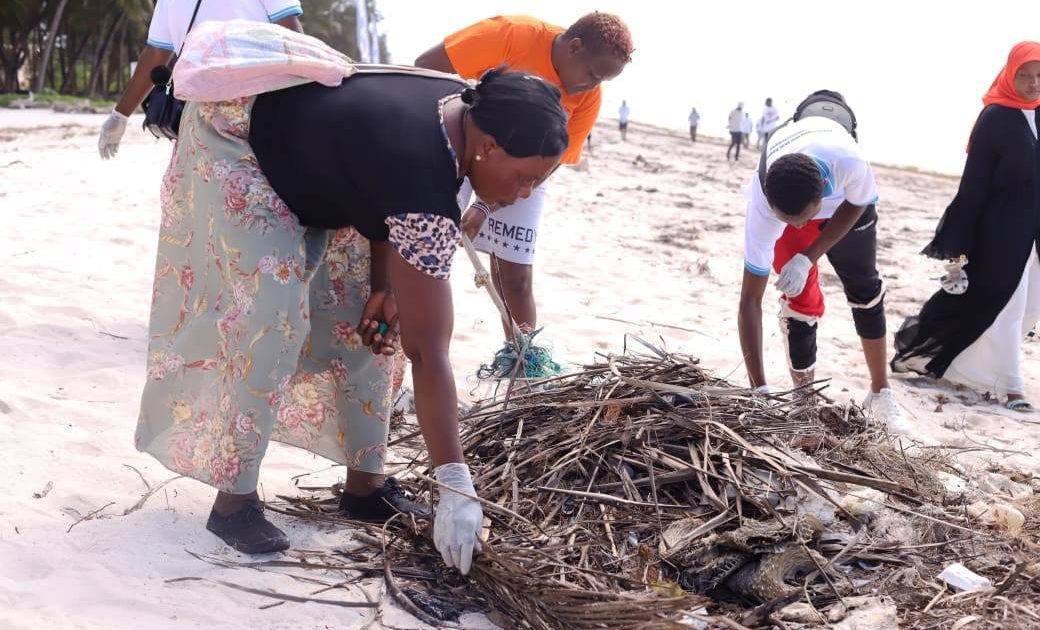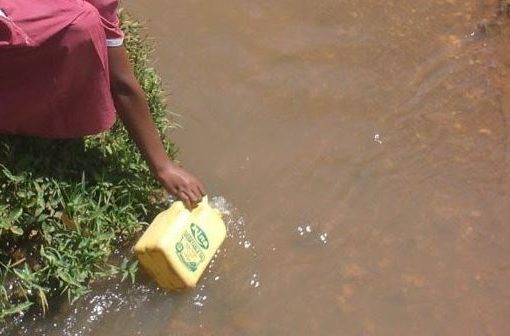Kwale county government has embarked on an ambitious beach cleanup exercise, aimed at protecting the fragile marine environment.
Pollution of the ocean by plastic and trash is an all-too-common sight with devastating marine implications.
The weeklong clean-up drive seeks to remove garbage and debris, particularly plastic waste from the shoreline, inculcating a sense of ownership and civic responsibility.
The coastal county was joined by various stakeholders working on creating awareness on the beauty and fragility of the oceans.
Volunteers, tourism sector stakeholders and environmentalists joined hands and picked up rubbish along the sandy walkways and those floating near the beaches.
Bags of beverage bottles, plastic containers, cigarette packets and other marine debris were collected during the cleaning exercise.
Area Deputy Governor (DG) Chirema Kombo who flagged off the beach clean-up drive says the move would go a long way in protecting and safeguarding the marine ecosystem.
He says removing floating marine litter and debris from the ocean and beaches is important not just for restoring the natural beauty of beaches, but also for saving marine life.
Mr Kombo says the beach clean-up and awareness campaign will be delivering to residents and visitors key messages on adopting lifestyle and behavioral changes that promote environmental sustainability.
“After seeing the trash in our shoreline that has become an eyesore we have decided to mobilise stakeholders and carry out the cleanup drive,” said Kombo.
He went further ‘we seek to reduce marine debris deposited along the pristine beaches such as fishing lines, cigarettes, plastic rubbish, man-made wastes and monofilament nets’.
Marine experts contend that birds and animals mistake trash such as plastic bags, cigarette lighters and bright coloured plastic as food and may suffer from internal injury, intestinal blockage and then starve to death.
The event witnessed hundreds of participants collecting plastic and other waste materials dumped on the panoramic Diani beach sand.
Diani beach is the preferred holiday destination for many Kenyans and foreign visitors and each year it receives a record number of holidaymakers arriving to savour its beautiful sandy beaches and tropical ambience.
Diani Beach has been voted the best beach destination in Africa six years in a row by the World Travel Awards.
Kombo says the devolved government is ready to engage key stakeholders in promoting beaches, nature reserves, nature reserves, parks and other protected areas as tourist destinations.

Kombo said that it is the responsibility of every citizen to protect the thriving marine ecosystem.
Kombo says Diani beach is an important global tourist destination and there won’t be any gaps in the cleaning drive.
He added the regular beach cleaning campaign also seeks to rehabilitate broken or damaged marine artifacts such as ecologically vital coral reefs and shells in the seabed.
Kombo said if marine debris that is washed ashore is not removed regularly it might trap and kill marine life besides making the shores untidy.
Kombo says the devolved unit was dedicated to creating awareness among stakeholders on the need to make the ocean free of the hazardous litter that kills marine life and scares away holidaymakers.
He says the marine rubbish has the potential to suffocate wildlife besides rendering the sandy white beaches untidy and hazardous to visitors and holidaymakers.
He says beaches are where the sea turtles come to lay their eggs and thus play an important role in sea turtle population and called on stakeholders to participate in safeguarding the marine environment.
The cleanup activity seeks to mobilize communities to participate in removing garbage and debris from beaches, as well as to identify the causes of the litter, modify polluting behaviours, and increase awareness of the scale of the marine debris problem.
By Hussein Abdullahi





